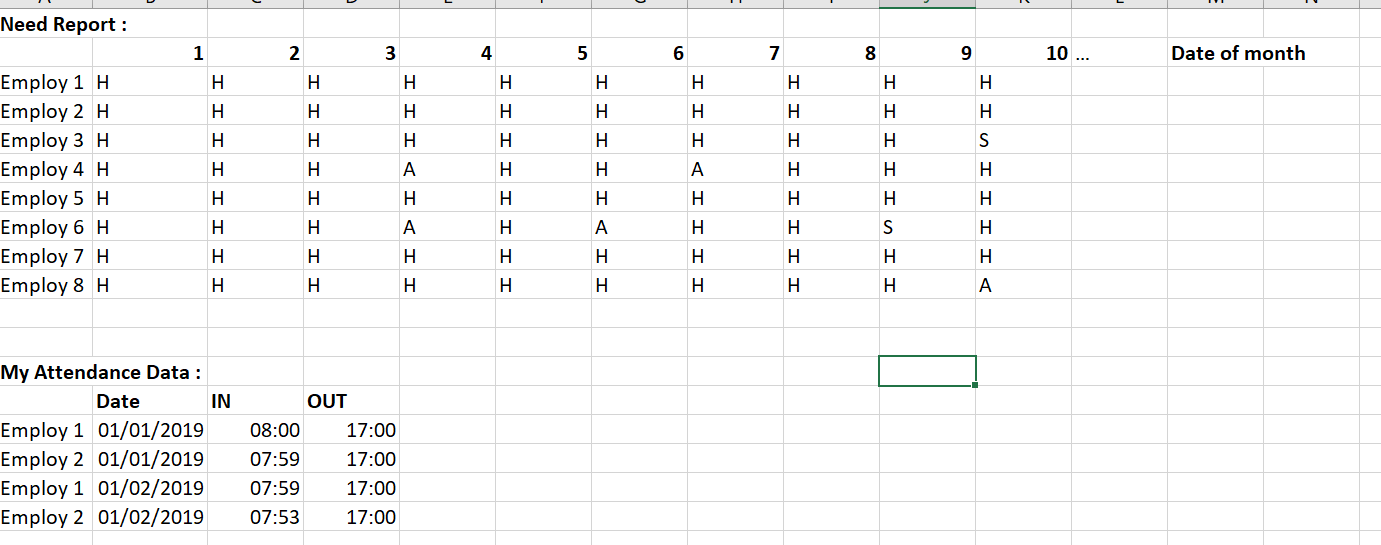KoolReport's Forum
Official Support Area, Q&As, Discussions, Suggestions and Bug reports.
Forum's Guidelines
Create Attendance Sheet Report ? #940
Hi Mazmur,
I think your case could make use of the Cube process. Let me present some sample code with a mysql table which you could modify for your case depending your database:
$this->src("mysql")
->query("select employee, day(dateField) as 'day' from myTable where month(dateField) = 1")
->pipe(new \koolreport\cube\processes\Cube([
"row" => "employee",
"column" => "day",
"count" => "employee"
]))
->pipe(new \koolreport\processes\RemoveColumn(["{{all}}"]))
->pipe(new \koolreport\processes\ColumnsSort([
"{name}" => 'asc',
"fixedColumns" => [0]
]))
->pipe(new \koolreport\processes\Map([
"{value}" => function($row, $meta) {
$columns = array_keys($meta["columns"]);
foreach ($columns as $col) {
if ($col !== "employee") {
if ($row[$col] === 0) $row[$col] = "A";
else if ($row[$col] > 0) $row[$col] = "H";
}
}
return $row;
},
"{meta}" => function($meta) {
$columns = array_keys($meta["columns"]);
foreach ($columns as $col) {
$meta["columns"][$col]["type"] = "string";
}
return $meta;
}
]))
->pipe($this->dataStore("attendance"));
The datastore "attendance" will have attendance data for month 1. It's similar for other months. Thanks!
Build Your Excellent Data Report
Let KoolReport help you to make great reports. It's free & open-source released under MIT license.
Download KoolReport View demo